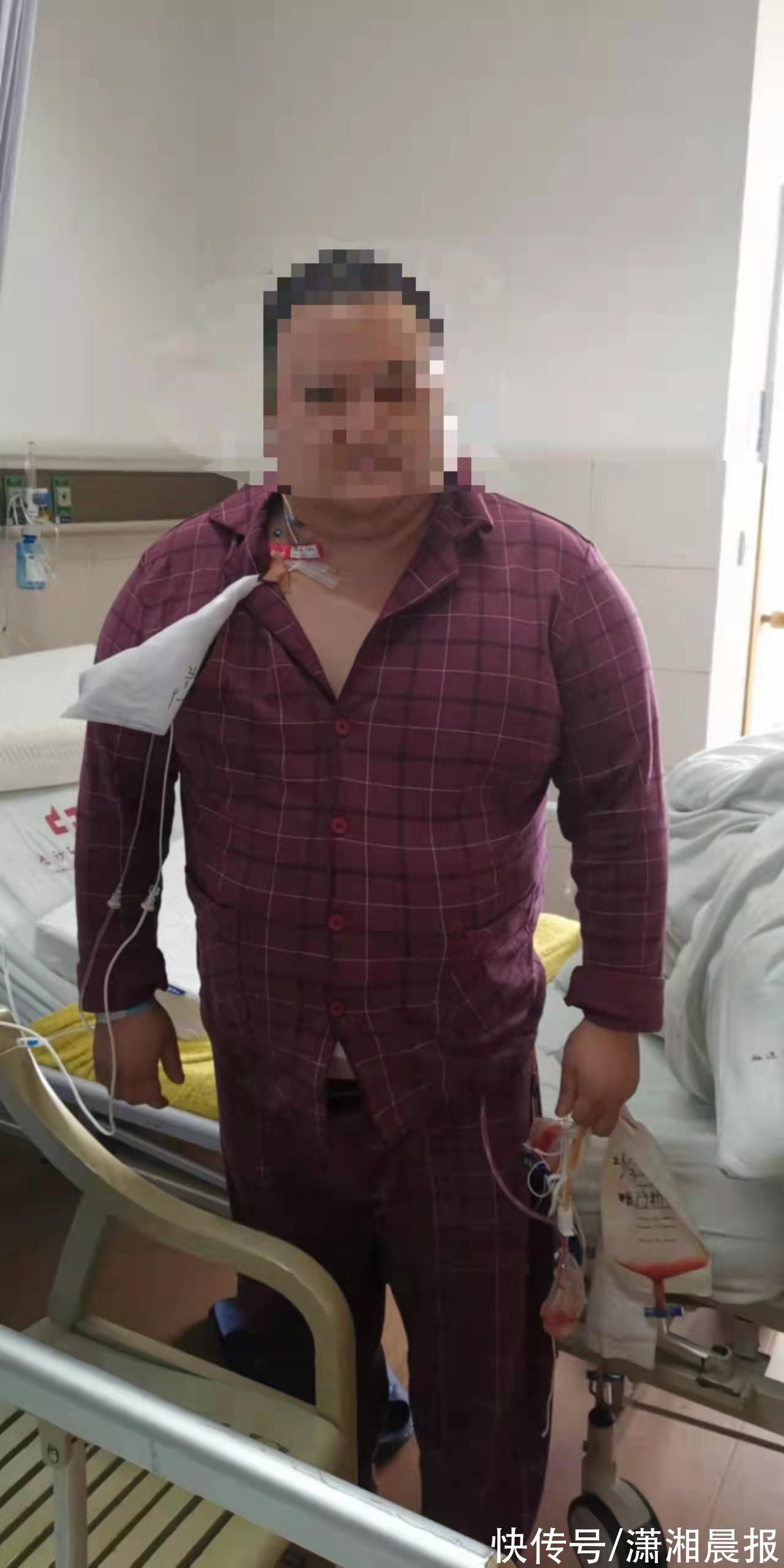“I’ve lost weight, lost weight, lost 20 pounds! That’s great!” Recently, 36-year-old Chen Li (pseudonym), who weighed 250 pounds, was accepted by the General Surgery Department of Changsha Central Hospital (Changsha Central Hospital affiliated to South China University). He underwent laparoscopic sleeve gastrectomy (weight loss surgery), and April 2 was the day he was about to be discharged from the hospital on the 10th day after the operation. The medical staff were delighted to find that he successfully lost 20 pounds while standing on the scale!
It is understood that Chen Li, 36 years old this year, has served in the army and only weighs more than 120 kilograms in the army. Ten years ago, he had unexplained weight gain, which gradually increased from 160 to 250 pounds. Obesity brought a heavy burden to his body, causing him to suffer from severe obstructive sleep apnea hypopnea syndrome, high blood pressure. Complications such as grade 3 (very high risk group), fatty liver, brainstem hemorrhage, etc., due to lack of oxygen during sleep due to poor breathing, Chen Li often “sleeps in seconds” when driving and waiting for traffic lights, causing a large number of traffic jams and being arrested by traffic police. I brought a police car to inquire, but I fell asleep within two minutes of communicating with the police officer. I once fell asleep while driving over the bridge. The front of the car broke the guardrail on the side and almost fell into the river… I’m trying After trying a variety of weight loss methods but no obvious effect, in order to seek help, he was admitted to the General Surgery Department of Changsha Central Hospital (Changsha Central Hospital affiliated to South China University) on March 14.

Huang Shaobin, deputy director of general surgery, led the team to carefully conduct a series of examinations for Chen Li, and believed that there was metabolic syndrome and severe hypoxemia. , hypercapnia, fatty liver, hyperlipidemia, hypertension, after consultation with relevant departments such as otolaryngology, anesthesiology, respiratory, nutrition, intensive care unit, etc., the contraindication of surgery is ruled out, and elective surgery is planned .
After a series of preoperative preparations such as improving ventilation function, correcting hypoxemia, and anesthesia assessment, on March 23, Huang Shaobin, deputy director of general surgery, led the team to perform laparoscopic surgery for Chen Li under general anesthesia. Sleeve gastrectomy (weight loss surgery), 80% of the stomach is removed, and the stomach volume is preserved 80-100ml. The operation went smoothly, and the patient was transferred to the intensive care unit for close observation. On the second day after the operation, the vital signs were stable, and he was transferred back to the general ward. Because the operation method was minimally invasive, the postoperative trauma was small and the recovery was fast. After 24 hours, the patient was cured. Start normal out-of-bed activities.

Huang Shaobin reminds: simple obesity is basically due to the imbalance of energy metabolism in the body, the intake of energy exceeds the consumption of energy and the accumulation of fat in the body It is caused by many factors, but it is related to multiple factors such as heredity (that is, personal physiological and metabolic characteristics), lifestyle (activity, diet structure), environment, psychology, and culture. How can I tell if I am obese? You can refer to the BMI index (body mass index, referred to as BMI), which is a number obtained by dividing the weight in kilograms by the square of the height in meters. Obesity standards for Chinese adults: BMI ≥ 24 is overweight, ≥ 28 is obese; male waist circumference ≥ 85 cm, and female waist circumference ≥ 80 cm is the waist obesity standard. According to the American Cancer Society, there is a close relationship between BMI and mortality. Men and women with a BMI between 22 and 25 had the lowest mortality rate; those with a BMI lower than 22 or higher than 25 had an increased mortality rate; when the BMI was 30, the mortality rate increased significantly; when it was close to 40, the mortality rate increased more significantly.
For obese patients with BMI greater than 35 and complicated with metabolic syndrome, fatty liver, apnea-hypopnea syndrome, hypertension and other complications, many non-surgical methods may have poor weight loss effect. Surgery may be more suitable. Laparoscopic sleeve gastrectomy bariatric surgery is a bariatric surgery method that removes 80% of the greater curvature of the patient’s stomach by a minimally invasive method and retains an 80-100ml tubular stomach. Through sleeve gastrectomy bariatric surgery, the stomach of obese patients is formed from a gourd into a banana shape, commonly called banana gastric surgery, in order to control the patient’s food intake, reduce the time for food digestion and absorption in the stomach, and thereby regulate Endocrine, reduce the patient’s food absorption and nutrient absorption, to achieve the purpose of weight loss. At present, Chen Limu recovered well after surgery, successfully lost 20 pounds and was discharged from the hospital.
Xiaoxiang Morning News reporter Mei Mei correspondent Chen Mingyan Zhu Wenqing
News clues reveal channel: Download the “Morning Video” client from the app market and enter the “Morning Help” topic; or call Morning Video news hotline 0731-85571188.